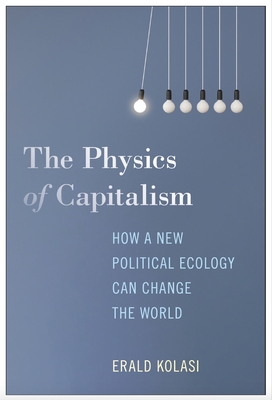A comprehensive blueprint for a new post-capitalist order--which values our collective future over immediate economic gains The fate of all economic systems is written in the energy flows they obtain from the natural world. Our collective humanity very much depends on nature--for joy, for comfort, and for sheer survival. In his prescient new book, The Physics of Capitalism, Erald Kolasi explores the deep ecological physics of human existence by developing a new theoretical framework for understanding the relationship between economic systems and the wider natural world. Nature is full of complex and dynamic systems that are constantly interacting with our societies. The collective physical interactions of the natural world guide and forge many fundamental features of human societies and civilizations. Humanity does not exist on a magical pedestal above the rest of reality; we are just one slice in a grand continuum of physical systems that interact, combine, and transform over time. We too belong to the natural world. And it's this critical fact that controls the long-term fate of our economies and civilizations. Among all the living organisms that have called this blue marble home, humans are a very recent species. In that short period of time, we have managed to become one of the most dominant life forms in the history of the planet, creating powerful civilizations with elaborate cultures, large populations, and extensive trade networks. We have been nomads and farmers, scientists and lawyers, nurses and doctors, welders and blacksmiths. Our achievements are both astonishing and unprecedented, but they also carry great risks. Throughout history, economic growth has depended heavily on people converting more energy from their natural environments and concentrating the resulting energy flows towards the application of specific tasks. The economic and demographic growth of human civilization over the last ten thousand years has profoundly impacted natural ecosystems throughout the planet, triggering major instabilities across the biosphere that threaten to reverberate on civilization and to destabilize its long-term trajectory. Swamped with multiple ecological challenges of historic proportions, global civilization now stands at a critical tipping point that deserves closer scrutiny. If we are to have any hope of addressing the difficult challenges we face, then we must begin by understanding them and appreciating their complexity. And then, we must act. Th











